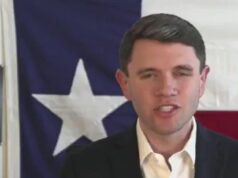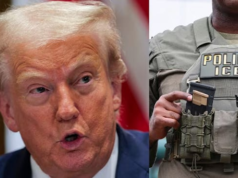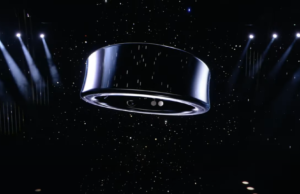By Paul Ingrassia
The significance of Tucker Carlson’s interview last week with Russian President Vladimir Putin cannot be overstated – and spans beyond just the immediate geopolitical crisis in Eastern Europe, the long-term sustainability of NATO, or even Russian-American relations more broadly.
At its core, Carlson has at this stage of his career transformed into something of an evangelist for the true meaning of freedom of the press. In saner times, no serious journalist would make the unsophisticated assumption that merely looking to sit-down for an interview with the President of a major superpower and trading partner constituted an act of treason, as so many talking heads on MSNBC, CNN, and the New York Times Editorial Page want you to think. Instead, the virtues that used to animate professional journalists to do their jobs well – by asking questions that go beyond the surface level about why things are the way they are – would be a barometer for competency and effectiveness. These are the things, driven by curiosity, that motivated Carlson to interview Putin.
It was not because Carlson is a “Putin sympathizer” or an “asset” of the Russian government – both inordinately stupid accusations — that drove his mission. But simply because Carlson is a professional journalist who takes his craft seriously. He is someone who follows his basic curiosity to better understand why the world is unfolding in a certain way. He appears to also be deeply troubled by the small-minded thinking, so common nowadays in Washington, that too frequently overwhelms more rational — and indeed, straightforward — decisions regarding foreign policy. Our society’s failure to be driven by the principles that make free speech and a free press possible in the first place has led to a series of foreign policy catastrophes. Each one seemingly after the other, over several decades now, has cost hundreds of thousands of innocent American lives – irresponsible decision-making that continues arguably worse than ever today.
A huge component of America’s political crisis can be explained by a failure of communication. This failure prevents any chance of levelheaded conversation that should lead to reasonable solutions, many of which are based on common sense, from coming to fruition. More often than not, practical solutions irrevocably break down into the feline hysterics and paranoia so commonly seen in today’s chaotic media environment. The result of this has been near-suicidal for our society. The effects of a weaponized justice system against the leading presidential candidate, the elevation of a senile man to the nation’s highest office, and the world order moving unnervingly close to all-out nuclear warfare are each directly traceable to this fundamental breakdown.
As it stands, one half of Washington truly believes we are still in 1980, and that Putin who oversees a country whose large size can easily make one forget its economy is smaller than the state of Texas, is Joseph Stalin reincarnated. Which is a slightly less insane verdict than the other side of the aisle, which believes that Putin is, literally, Adolf Hitler.
Some of this may be explained by the reality that huge swaths of our current ruling class were indeed children at the time both Stalin and Hitler ruled the world. Thus, their confusion of what century we are in is in part attributable to their advanced senility. But the axiomatic fixation on World War II era tropes (paired with the morality of the sixties), which expired some eighty years ago, the same time when the war ended, proves woefully inadequate as a heuristic to make decisions about war and peace in modern times. Time after time, our oversimplified World War II/Hollywood gauge for assessing world affairs has proven not just dumb but dangerous.
Tucker Carlson readily understands this. This is why he is the only one in his profession in recent years who decided to physically travel to this supposed enemy land in Russia. This allows him to collect new data and update the set of assumptions he uses to understand Putin’s motives for annexing part of Ukraine.
Any skilled negotiator and this is what separated Donald Trump from other politicians, knows to ask questions, to listen carefully, and only speak when necessary to get the best possible understanding of your adversary – which, in turn, allows you to make the best possible decisions for your country. This is the time-tested formula that almost always leads to constructive results.
Past statesmen understood these lessons intuitively. In our age of a senile President and a “Vice President” whose understanding of the world would be embarrassing for a fourth-grade classroom, results in a situation that demands more and more Americans — journalists, especially, but even just everyday people — follow Carlson’s lead and boldly proclaim the truth as they see it.
The Russia-Ukraine war stands as the best example of a crisis that could have been entirely avoided if America had made even the slightest effort to try to understand the other side. This would have resulted in a negotiated peace.
Carlson was correct to say on his international sojourn that America, for its many problems, remains the most powerful country in the history of the world. America has the means to come to a negotiated settlement and enough might to avoid resorting to the use of arms that we have seen with increasing frequency all throughout Biden’s term.
Carlson recently analogized the United States as the father figure on the world stage. This is true: we have the power to avoid warfare in most cases. To the extent we cannot avoid armed conflict in every circumstance, we have the means to end wars that do break out, usually swiftly and in a way that mitigates both lives lost and economic costs like record-breaking inflation.
Today, we are observing the disastrous effects of that awesome power being mishandled – power irresponsibly placed in the hands of incompetent leadership. This amounts a failure of America’s fatherly role. We have totally abandoned our duty to the world, instead giving into emotionalism over clear-headed sobriety, operating not like a dutiful father but like a scorned woman instead.
Putin understands his country’s role – including the limits of what Russia can and cannot do. America, by sharp contrast, emphatically does not. Our leaders on both sides of the aisle overwhelmingly cannot properly gauge our capacities and limits – they are unwise and do not have the humility to grasp the limits to their knowledge.
This is the important distinction between Russia and America: one power knows its limits while the other does not. Whether Carlson intended this or not, this was the most important takeaway of his recent interview with Putin — a lesson that American lawmakers and journalists should take seriously if there is any desire at all to retain their leadership position in the world.











